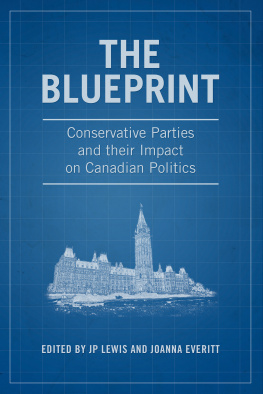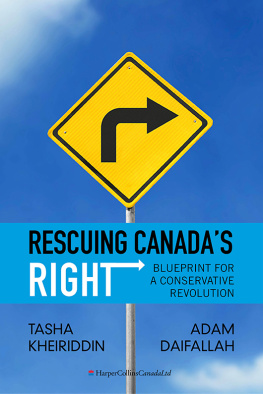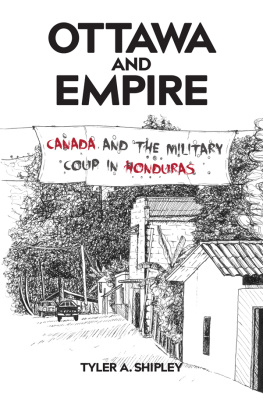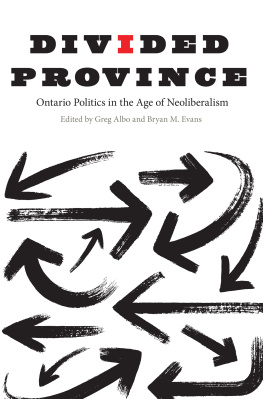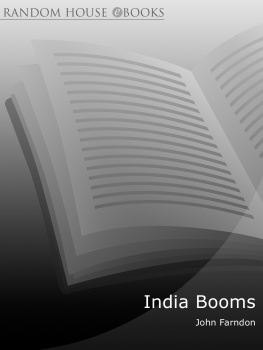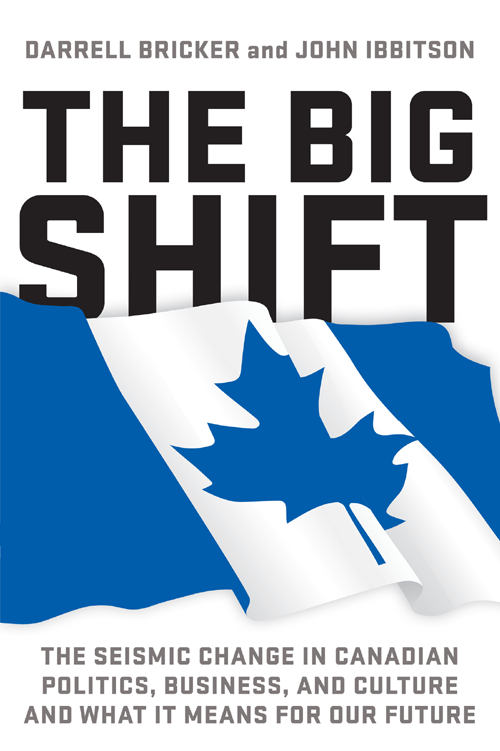D.B.
J.I.
Preface
YOU NEED TO STOP LISTENING
I n university classrooms across Canada, professors are teaching their students nonsense. In newspaper columns and on television, commentators are talking rot. Authors and playwrights and poets and musicians sing of a country that doesnt exist. Politicians offer promises that people dont want them to keep.
You need to stop listening to these people. Not because theyre left-wing or right-wing, but because theyre just wrong.
The people were talking about are mostly found in the classrooms and boardrooms and newsrooms in the big cities of Ontario and Quebec. We call them the Laurentian elites. They are a small, select group, found in Central Canadas major centres, who up until very recently controlled the political and cultural levers of the country. Although they often disagree among themselves, they share a common set of assumptions about Canada: that its a fragile nation; that the federal governments job is to bind together a country that would otherwise fall apart; that the biggest challenge is keeping Quebec inside Confederation; that the poorer regions must forever stay poor, propped up by the richer parts of the country; that the national identitywhatever it ismust be protected from the American juggernaut; that Canada is a helpful fixer in the world, a peacekeeper, a joiner of all the best clubs.
Most of all, these Laurentian elites assume that their version of the country is the country, and that they run the country, just as they have always run it in the past.
All of this and more, put together, we call the Laurentian Consensus. We think the Consensus is an illusion. We think the country has irrevocably changed from a place it controlled and understood to one it no longer controls or understands. This change, the most fundamental Canada has experienced since the social revolutions of the 1960s, we call the Big Shift.
For about 20 years, Canada has been importing roughly a quarter of a million people a year from other countries. Thats a new Toronto every 10 years. If you reproduce the countrys largest city twice in such a short period of time, youre going to change things. If those two new Torontos consist almost entirely of immigrants from third world countries, mixing with a population of largely European stock, youre going to change things a lot. If you keep doing ityear after yearthe country will soon become unrecognizable.
The Laurentian elites dont realize that Canada no longer belongs to them. A country that was once white is becoming brown. A country that was once part of the Atlantic world is becoming part of the Pacific world. The provinces that mattered most dont matter as much anymore. The countrys centre has shifted west, and power has shifted with it. In fact, power is now shared by two groups: Westerners and Ontarios suburban middle class, especially the immigrant suburban middle class. In terms of power and priorities, nothing else and no one else is as important.
The Laurentian elites dont get this. Ensconced in their leafy downtown enclavesTorontos Annex, Ottawas Glebe, Montreals Outremontshuddering at the faceless suburbs they pass through on the way to the cottage, they think their values are still the nations values and their assumptions the nations assumptions. Because they stand at the front of so many classrooms, and still run or work for the biggest newspapers, networks, and publishing houses, because they sit around so many boardroomsbecause, in short, they remain the gatekeepers to Central Canadas academic, business, and cultural communitiesand because they talk only to each other and to no one else, they continue to think they matter.
They dont matter. The country has moved beyond their understanding. This leaves the Laurentian elites angry and bewildered. Nothing makes sense the way it used to. Theyre like the Catholic Church during the Renaissance, trying to keep the Earth at the centre of the universe despite everything the astronomers were telling them. So they contort reality to make it fit their false assumptions, even as their contortions become increasingly ridiculous.
You may think that this is a conservative argument. It isnt. Yes, the Conservatives under Stephen Harper understand better than anyone else what Canada is becoming. They have tailored their message and their priorities to fit the New Canada. They get the Big Shift.
But the values and priorities of the New Canada arent entirelyor even mostlyconservative. Theyre realistic, pragmatic, cosmopolitan, global, forward thinking. Progressive politicians should be able to speak to them, too. Thomas Mulcair and his rapidly evolving New Democratic Party are trying to do just that. The Liberal Party, which was always the party that most closely identified with the Laurentian Consensus, still doesnt seem to get any of this. And so its dying. It is not, however, dead yet. Whether the party of Laurier and King and Trudeau and Chrtienbut also of Turner and Martin and Dion and Ignatieffrecovers and thrives depends entirely on whether it wakes up to what has happened to a country that it no longer comprehends.
Some readers may consider what were about to say to be treasonnot against our country (though some may think that, too) but against our class. For we are the people we are warning you about. Darrell Bricker is the president of Ipsos Reid Public Affairs, a major pollster in Canada and around the world. John Ibbitson is the chief political writer for the Globe and Mail. Were a couple of middle-aged WASPs who live in Laurentian neighbourhoods, who work for companies that are information leaders, who for much of our careers have shared and traded on the very assumptions we now reject.
But thats why weve written this book. We realize that the Canada we thought we knew has gone away. Everything has changed, and everyone must change with it or step aside.
Otherwise you wont listen to us anymore.
The Death of the Laurentian Consensus
WHY THE PEOPLE WHO USED TO MATTER MOST DONT ANYMORE
T he first course was asparagus soup. Not too much cream, because everyone eats sensibly nowadays. But asparagus is in season for such a short time, and it was such a decadent contrast to the lamb and couscous. Things were going so well until Gerald brought up politics, as Gerald always must.
Do you see what hes done now?
Who? Celia asked.
Who do you think? Gerald growled, mopping the bowl with his bread. Hes cutting funding to the National Ballet.
No! Celia lowered her spoon.
Gerald nodded grimly. And the Canadian Opera Company. And the Toronto Symphony.
They were silent for a moment. The spring rain washed softly across the leaded glass panes of the dining room window.
Are you sure? Roberta tried to hide her alarm, for Gerald could easily ruin an entire evening if he got going. I thought that was just what the Opposition was claiming.
Oh, hes going to do it, all right, just you wait. Gerald leaned back, clenching the napkin in his right hand. He hates the arts. Cant stand em.
Such a damn shame, Maurice muttered, holding up his bowl. Roberta, are there seconds?



